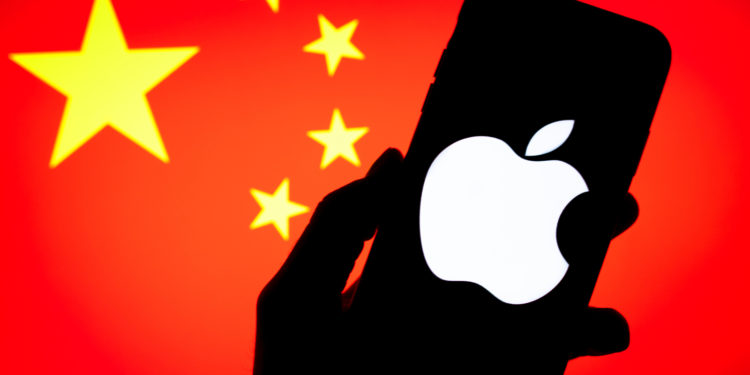A new investigation reveals some of the compromises Apple has made in China to gain access to the booming market, including storing data on government servers and censoring apps in the country that violate local regulations.
China is a critical region for Apple, both in terms of sales of products and services and because of its heavy reliance on the country's supply chain. In short, China has helped Apple become the most valuable company in the world. The New York Times lifts However, it highlights all the ways in which the Chinese government has pressured Apple to make compromises that conflict with the Cupertino tech giant's stated values and principles.
Data of Chinese users is stored in China
For example, despite Apple's strict stance on protecting user privacy, the company stores all Chinese user data within the country's borders on servers owned by a state-owned firm. Security experts say this means it is virtually impossible for Apple to prevent the Chinese government from gaining access to the user data. Moreover, while U.S. regulations prohibit Apple from handing over data to Chinese authorities, storing Apple data locally creates a loophole. A China-based firm, Guizhou-Cloud Big Data (GCBD), is actually the legal owner of Apple iCloud customers in China. Because of this, Chinese authorities can demand access to the data from GCBD, not Apple. The terms protect Apple from legal reprisal in the U.S., according to a person involved in drafting the agreement.
Is Apple still in control?
Before that agreement existed, Apple said it never shared data with the Chinese government. After Apple made GCBD the owner of the data, the company said it provided iCloud content for an undisclosed number of accounts in nine separate cases. Apple pushed to keep the encryption keys out of the country as part of the original agreement, which called for local storage of the Chinese data. However, less than a year after the deal was struck, Apple moved the digital keys from the U.S. to China, making it easier for Chinese government agencies to obtain user texts, emails, and other information. The company said in a statement that it still controls the keys and uses advanced encryption technology — more advanced than solutions used in other countries — to keep them secure.
App Store in China: Apple employs special team
The compromises also exist in the App Store. According to the New York Times, Apple has an internal team that either rejects app submissions or pulls down apps that it believes may violate Chinese regulations. Apple uses special tools and trains its reviewers to detect topics that are considered taboo in China. These include mentions of Tibetan or Taiwanese independence, the Tiananmen Square incident or the Dalai Lama. About 55,000 apps have disappeared from the App Store in China since 2017, according to data from Sensor Tower. Some of these apps include foreign news media, encrypted messaging apps and gay dating services, as well as platforms such as VPNs that allow users to bypass internet restrictions. For its part, Apple said it approved 91% of the takedown requests, or 1,217 apps, from the Chinese government in a two-year period that ended in June 2020.
Apple: “These decisions are not always easy”
Apple's statistics may not tell the whole story, as the review apparatus could remove apps before they catch the eye of government officials. In a statement to The New York Times, Apple said it follows the laws in China and does everything it can to protect the security and privacy of its customers' data in the country.
We have never compromised the security of our users or their data in China or anywhere else where we operate.
The company also pointed out that it only removes apps to comply with Chinese regulations, with Cupertino adding:
These decisions are not always easy and we may not agree with the laws that shape them, but our priority remains to create the best user experience without violating the rules we are committed to. (Photo by nikkimeel / Bigstockphoto)





